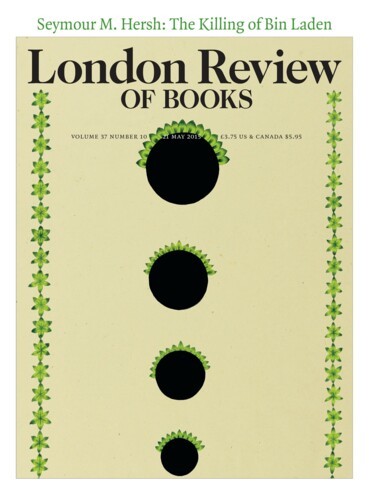Ghaith Abdul-Ahad
Ghaith Abdul-Ahad has reported from Iraq, Afghanistan, Syria, Libya and Yemen.
Each rock has two names: In Nagorno-Karabakh
Ghaith Abdul-Ahad, 17 June 2021
When one nation asserts that its history has primacy over its neighbour’s, disputes arise over who has the rightful claim to a territory. Each mountaintop, river or valley can mean different things to different peoples. Or, as one Azerbaijani I know says: in Karabakh each rock has two names. In both Armenia and Azerbaijan, writers constructed an ethnonational narrative that aspired to negate the existence of the other country, or at least to assign it the role of newcomer in the region. This approach would eventually provide the justification for the violence in the streets. Armenian writers pointed to Armenian churches and monasteries in Karabakh as proof of an uninterrupted presence in the area. They dismissed the term ‘Azerbaijan’ as a modern political label and exaggerated Turkish influences: although the Azerbaijani language is Turkic, the people are predominantly Shia with heavy Persian influences. But Azerbaijani Shiism is much milder than the Iranian variant, tempered by 170 years of Russian and then Soviet secular rule.
The Baghdad Road: In and Out of Mosul
Ghaith Abdul-Ahad, 4 May 2017
For the last three years, Ali and his men and fellow officers in the Iraqi Special Operations Forces have been living like modern-day nomads. Once a neighbourhood is liberated, they move into abandoned civilian houses and set up camp. When the frontline shifts they move with it and change houses, sometimes every night, but often they find themselves stuck in the same house for weeks. Whether in mud huts in villages with no running water, in villas with nice décor and expansive gardens or in brick houses in the narrow alleyways of provincial towns, they build their temporary nests, moving into the beds of a family that has just joined a caravan of refugees, replacing the stinking blankets they have brought from a previous house with fresh ones. They talk about girls, drinking Grey Goose, and their wives and children back home.
Some Tips for the Long-Distance Traveller: How to Get to Germany
Ghaith Abdul-Ahad, 8 October 2015
A Kurdish friend of mine in Sulaymaniyah in northern Iraq recently posted an image of a hand-drawn diagram on his Facebook page. With little arrows and stick figures and pictures of a train and boat or two, the diagram shows how to get from Turkey to the German border in twenty easy steps. After you’ve made the thousand-mile trip to western Turkey, the journey proper begins with a taxi to Izmir on the coast. An arrow points to the next stage: a boat across the Aegean to ‘a Greek island’, costing between €950 and €1200. Another boat takes you to Athens.
Diary: In Sanaa
Ghaith Abdul-Ahad, 21 May 2015
Early last year, the Houthis, followers of a revivalist anti-Western cleric, moved out of their northern highlands and marched south towards Sanaa, promising to end corruption, to fight al-Qaida, challenge US hegemony – al-Qaida and the Americans were allies in the subjugation of Muslims, they said – and raise Yemenis out of poverty and powerlessness into a shining and more dignified future. In 2011 President Saleh had been toppled to be replaced by his deputy, the aloof Abd Rabbuh Mansur Hadi, who had allowed the Yemeni branch of the Muslim Brotherhood to control many offices of state.
Read anywhere with the London Review of Books app, available now from the App Store for Apple devices, Google Play for Android devices and Amazon for your Kindle Fire.
Sign up to our newsletter
For highlights from the latest issue, our archive and the blog, as well as news, events and exclusive promotions.




